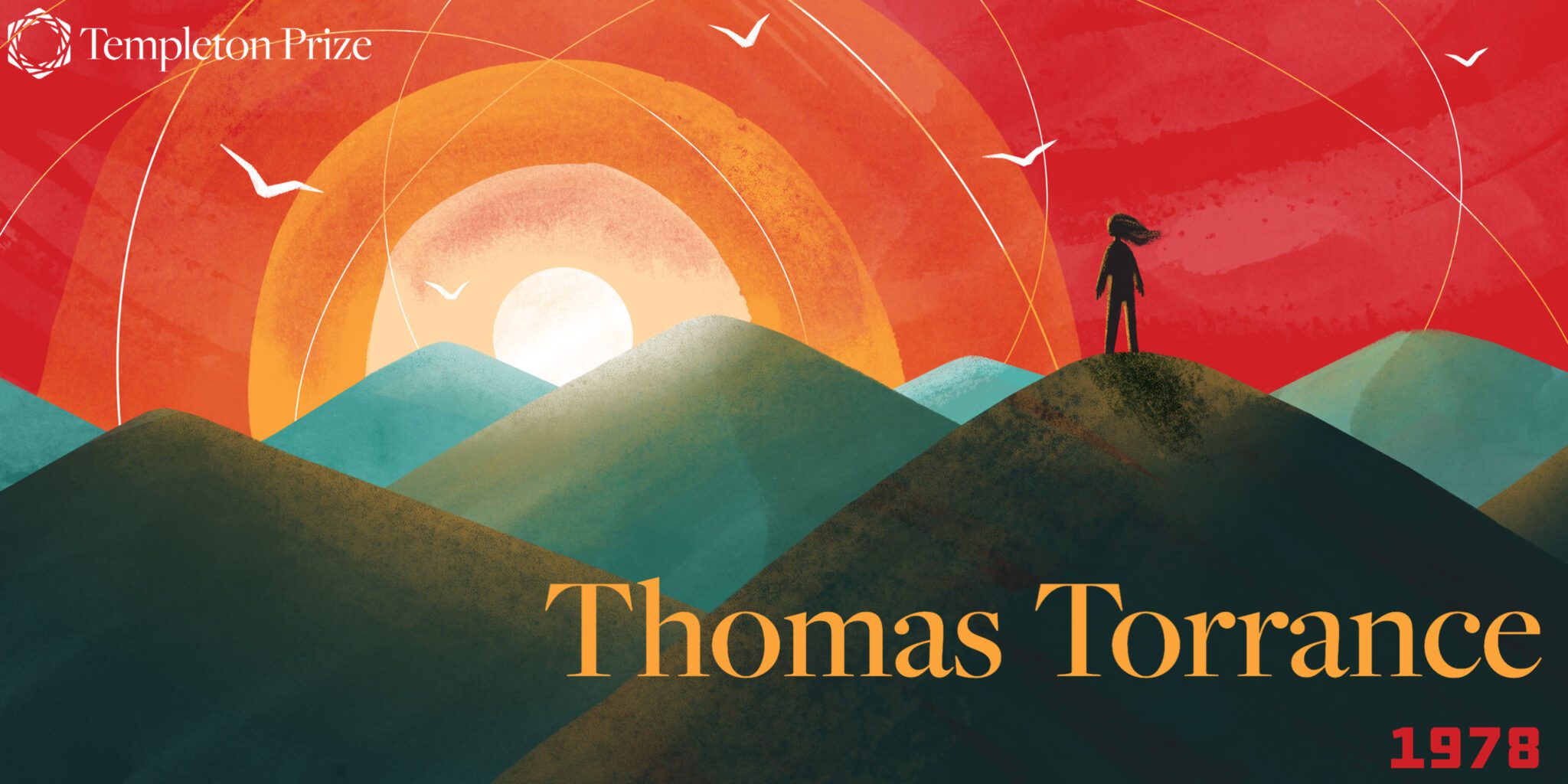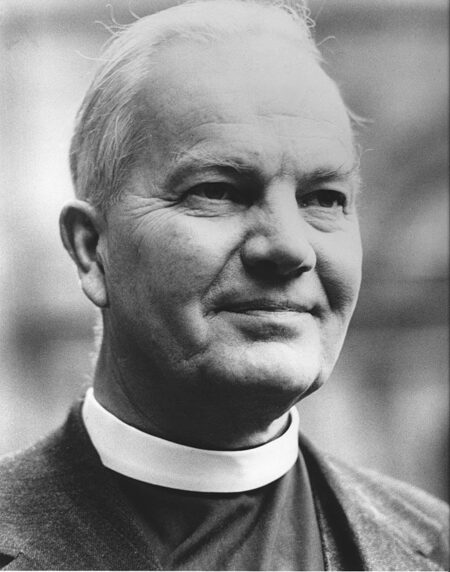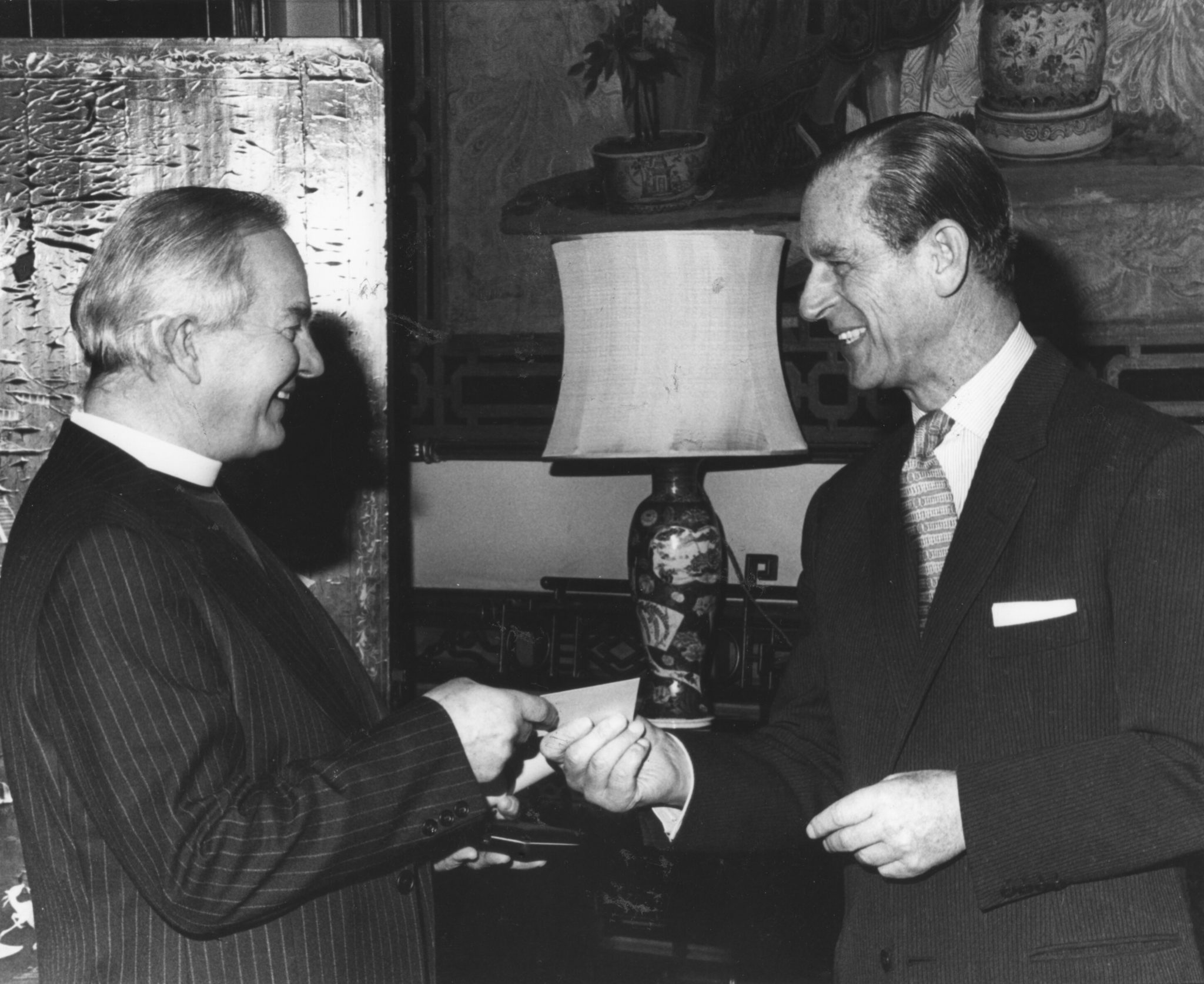In 1973, the first Templeton Prize was given to Mother Teresa. In 2023, we celebrate the 50th anniversary of this award. Over the next 52 weeks, we will highlight each of our laureates and reflect on their impact on the world. From humanitarians and saints to philosophers, theoretical physicists, and one king, the Templeton Prize has honored extraordinary people. Together, they have pushed the boundaries of our understanding of the deepest questions of the universe and humankind’s place and purpose within it, making this (we humbly think) the world’s most interesting prize.
Born in 1913 to missionary parents in Chengdu, China, Thomas F. Torrance was destined for a life of ministry. A Scottish Protestant theologian and minister, he is best known for his pioneering work in the study of science and theology.
Torrance began theological training at a young age from his parents. He studied with theologians at universities in Edinburgh, Basel, and Oxford who instilled the significance of theology as the foundation of the Christian life. This led him to reconsider his desire to become a missionary and instead pursue academic theology. In 1938, Torrance served as a professor at Auburn Theological Seminary before returning to his home in Scotland a year later where he accepted a position as pastor of the parish in Alyth.
-

Thomas F. Torrance
During World War II, he provided pastoral and practical help to Scottish soldiers in North Africa and northern Italy, and he escaped with his life on several occasions after falling under fire. This experience made Torrance realize the significance of Jesus’ centrality in Christian theology. Torrance returned to his church in Alyth after the war, where he continued to work for theological renewal of the church’s image and purpose. To aid in this effort, he founded the Scottish Church Theology Society in 1945, followed by the Scottish Journal of Theology in 1948.
In 1952, Torrance was appointed chair of dogmatics at the University of Edinburgh, where he used his position to make significant contributions to the church unification movement at the time. While the Edinburgh Missionary Movement initiated interest in ecumenism in 1910, it gained momentum following World War II with the establishment of the World Council of Churches in 1948. Torrance was appointed to represent the Church of Scotland in these conversations. His greatest contribution was his research into the fundamental theological principles that allowed these discussions to take place.
Throughout his tenure as a professor, his main focus was the church and ministry, constantly maintaining that appropriate church practice stems from a proper understanding of identity. Torrance retired as the chair of dogmatics at the University of Edinburgh in 1979, though he was still extremely engaged with the church. Torrance’s contributions to Christian theology and church unity later established Edinburgh as one of the world’s most important centers for the study of Christian theology.
-

T. F. Torrance accepting Templeton Prize from HRH Prince Phillip
Thomas F. Torrance earned the Templeton Prize for his insights on the rationality of the universe and trying to find evidence of God through scientific reasoning. Torrance became the sixth Templeton Prize Laureate and gave his acceptance speech in Guildhall, London on March 21, 1978.
“I stand before you greatly honoured and humbled by the judgment which makes me the recipient this year of The Templeton Foundation Prize for Progress in Religion. No one engaged in thinking out the inter-relations of theological science and natural science could be more encouraged than I am by this international recognition of what I have been trying to do, although I know that my work falls far short of what it ought to be. But the award in the area of human inquiry into the relation of the Creation to the Creator focuses the spotlight on the point where before the astonishing nature of the universe as it is revealed in scientific inquiry I am overwhelmed with awe and wonder of a profoundly religious kind in which my prime thought is of praise and glory to God the Father Almighty, the Maker of heaven and earth and of all things visible and invisible.”
- Thomas F. Torrance, 1978. Read the full speech
“This has been my experience as a bishop and I want to tell him that I have been greatly aided by his writings and by the writings of many other leading theologians who, in this day and age — a very strange and difficult age — have helped us to read the Bible with a new understanding of its greatness, and have helped us to understand the relevance of the Gospel to this and every age, and to preach it — so at least we hope — in words and thought-forms that can be understood by men and women and boys and girls whose minds have been dominated — even sometimes conditioned — by a hangover of a materialist philosophy, claiming the support of the almost incredible advances in every branch of science. You might perhaps wonder what theology has got to do with The Templeton Award for forwarding the ‘Progress of Religion’. The answer is easy: (a) The Church needs its research students of science. (b) We all need to try to understand our faith: No understanding: No practice.”
-
- Rev. Frank Woods, 1978. Read the full speech
STILL CURIOUS?
Learn more about 1978 Templeton Prize laureate Thomas F. Torrance.


